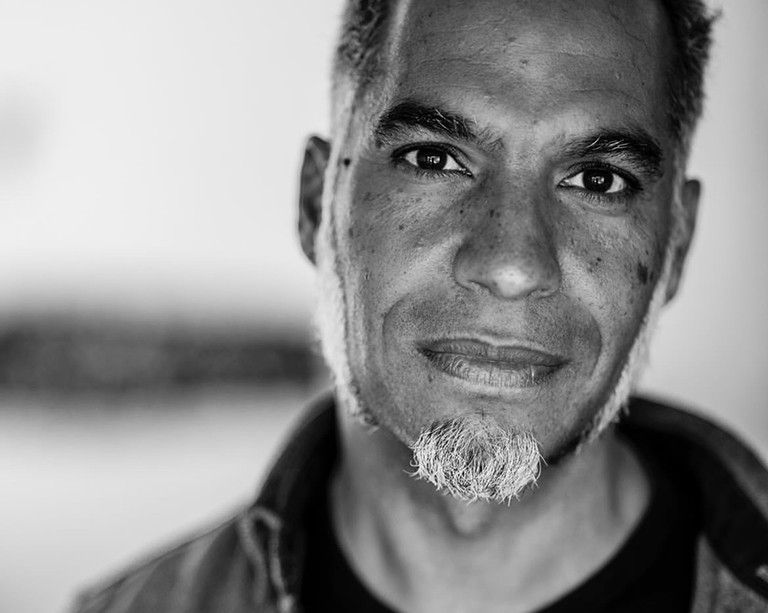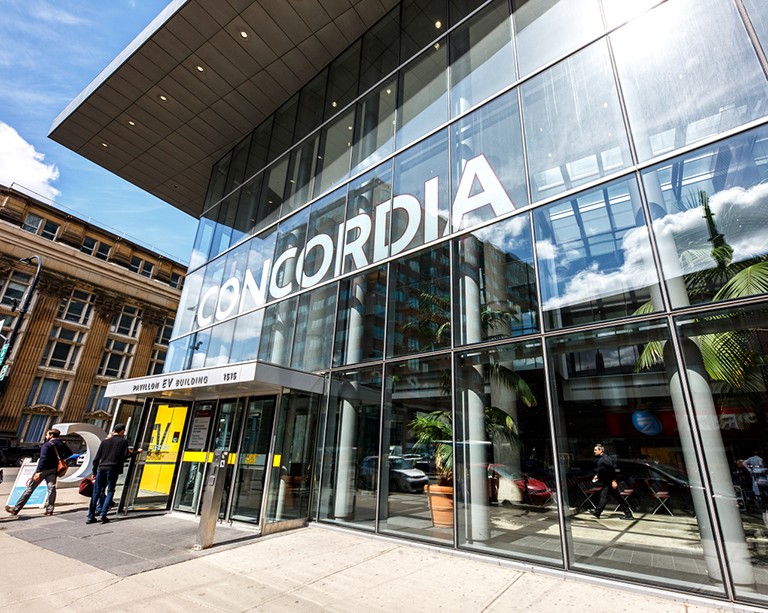Concordia’s Jazz Studies program celebrates 40 years and says farewell to a long-time music professor

2024 marks a year of milestones.
In addition to Concordia's 50th anniversary, the university’s renowned Jazz Studies program — the first university-level jazz program in Canada — turns 40.
And this June, the Department of Music will celebrate another special occasion: the retirement of associate professor and trumpeter Charles Ellison, one of its esteemed faculty members.
Since the Jazz Studies program’s inception in 1984, Ellison has been a pivotal figure, teaching The Language of Jazz (Jazz 200) and trumpet performance and leading many of the university’s musical ensembles.
Ellison says Concordia’s program has long distinguished itself from others. “Ours was the first to accept the electric bass, drum kit, pans and accordion as instruments,” he notes.
“We also had three big bands, a guitar ensemble, a flute ensemble and a jazz choir.”
Joshua Rager, associate professor and acting chair of the Department of Music, also emphasizes how much the program paved the way for those that came after. “Concordia preceded all other university jazz programs in the country and spearheaded a new jazz pedagogy within academia,” he says.
“The cornerstone of the program positioned Black American culture as the basis for the transmission of the music.”

Groundbreaking curriculum
Rager says the Jazz Studies groundbreaking curriculum teaches the elements of theory and harmony as only part of a whole education. “Students must also study and absorb the music’s culture and history to discover an authentic voice as jazz musicians,” he explains.
It’s a holistic approach Ellison has embedded into his teaching practice.
“When we teach jazz performance, we teach it from a vocal and instrumental perspective, but you can’t talk about jazz and instrumental music exclusively. You have to teach history and sociology at the same time,” Ellison says. “So, we talk about the father of jazz music and singing, Louis Armstrong. We ask, what was it about his life circumstances and New Orleans, sociologically, that contributed to his development?”
Discussing the program’s unique offerings, Ellison points to the many notable guests invited to present and perform in his Jazz 200 course over the years. He floats names like Ethel Bruneau, dubbed Montreal’s queen of tap, among a long list of acclaimed dancers, vocalists and musicians who impacted students.
Rager says the program continues to foster community, humanity and democracy as it teaches the information and instrumental skills necessary for student success.
He adds that it offers a supportive, non-competitive environment that welcomes students of all backgrounds.

Charles Ellison, a celebrated trumpeter and educator
Ellison’s love of jazz and career as a celebrated trumpeter was shaped by formative years in Tennessee and later Indiana.
Looking back on his early musical inspirations, Ellison recalls an experience the summer before eighth grade in Trenton, Tennessee. “I went to a band rehearsal with a couple of my best friends and was invited to sit in the trumpet section,” he says.
“The director begins conducting, and suddenly, I’m surrounded by all these glorious tones. People who had been individuals are now one, speaking with one voice, their breath and hearts palpitating the same way. It was just beautiful.”
Music became an integral part of Ellison’s life from that point onwards.
He joined his high school’s marching band, a tradition Ellison says is deeply rooted in African American culture in the South. The school’s music teacher, John McLennan, became one of his early mentors.
“Our teacher was the kind of person who would make arrangements of Bach, Chopin and Ellington for first-year high school students,” he says.
The following year, Ellison’s family moved to South Bend, Indiana, where he continued to pursue his passion for jazz before eventually earning a Bachelor of Music and a Master of Philosophy from Indiana University Bloomington. While at the university, he was mentored by renowned jazz educator and musician David Baker.
Life led Ellison to Montreal, where he taught music at McGill University in the late 1970s. In 1978, he joined Concordia as a part-time instructor and became a full-time faculty member in the Department of Music in 1980.
Rager says Ellison has been a constant at the university for the past 43 years. “Charles taught and mentored generations of students, many of whom have gone on to prominent careers as performing jazz musicians and educators,” he notes.
“He developed curriculum and courses that were groundbreaking additions to the art form of jazz education.”
Rager also highlights Ellison’s impact as a celebrated musician in the Montreal jazz scene. “As a trumpet player, band leader and composer, Charles continues to leave an indelible mark on the Canadian jazz landscape,” he says.
“We congratulate him for his lifetime of service teaching and mentoring young musicians both at Concordia and in the Montreal jazz community.”
Reflecting on his role as an educator, Ellison refers to it as a calling. “Teachers can be trained, but being called means you care about the student. You do everything for the student and every child that you teach is a member of your family,” he says.
“Everybody that I’ve ever taught at Concordia is my family.”
Find out more about Concordia’s Jazz Studies program and Department of Music.


